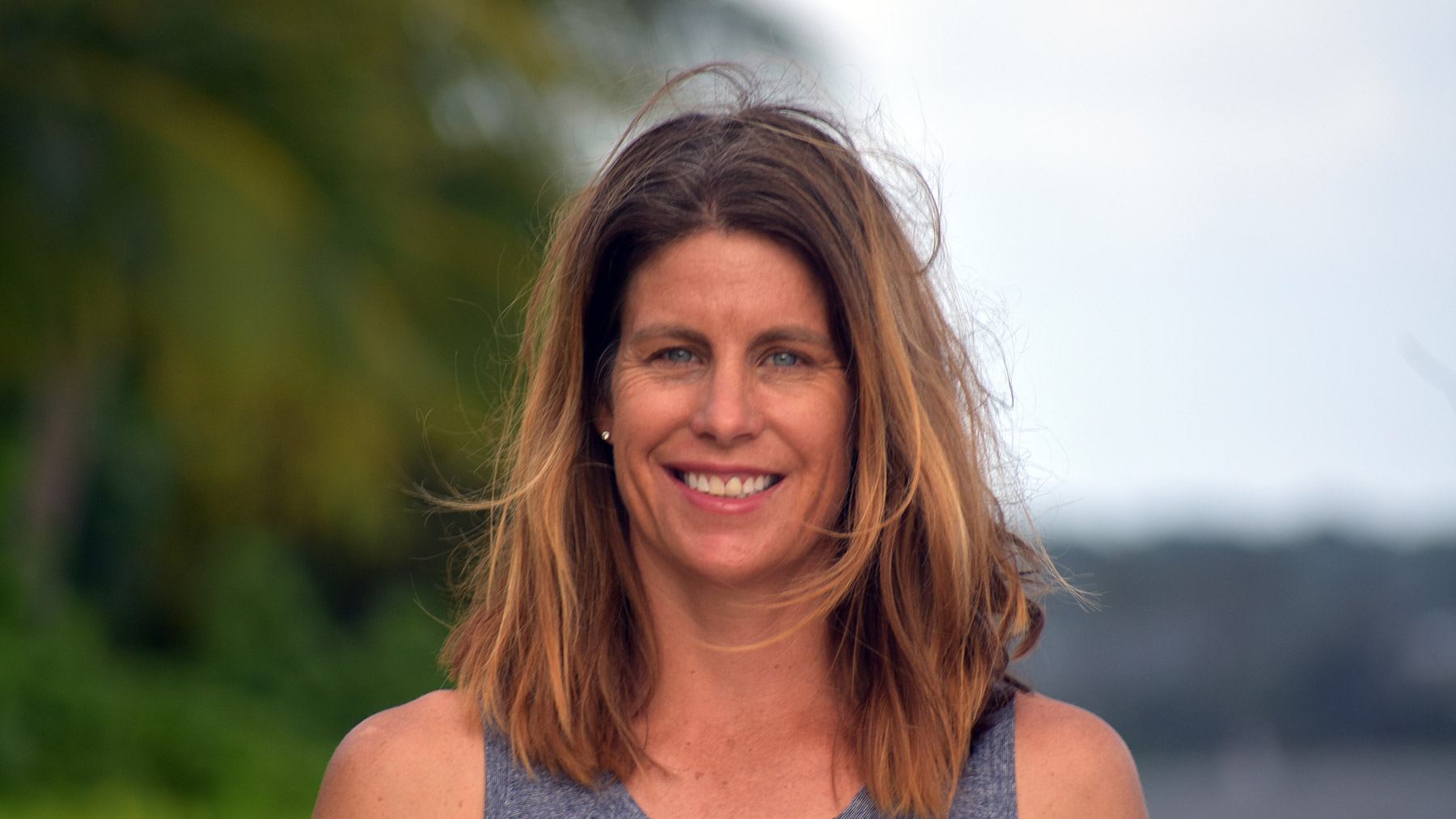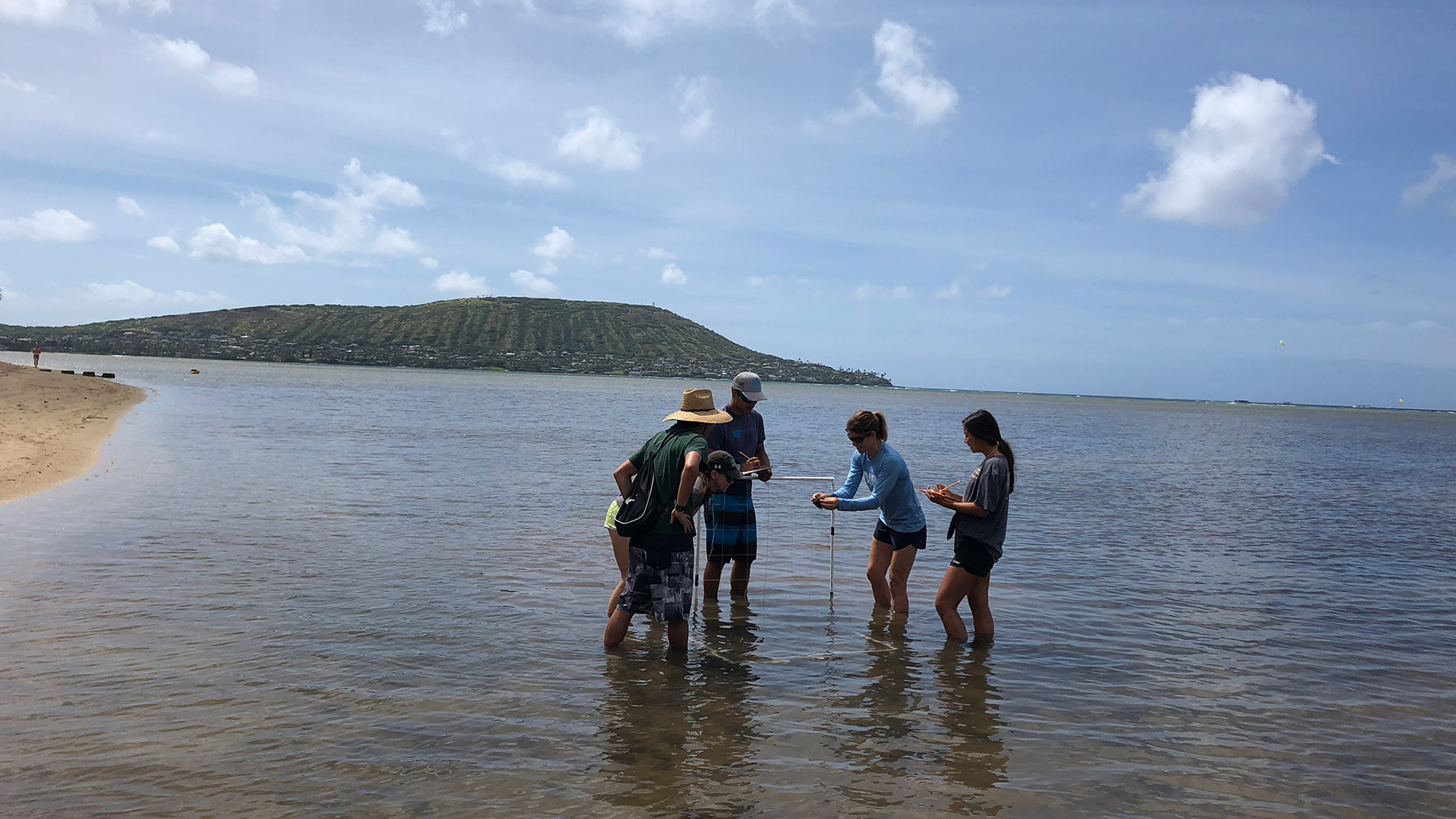Time Out for Environmental Science Education
Time Out for Environmental Science Education
Ever since she was a child, Pam Weiant ’92 has loved the outdoors, and working to preserve the environment has become her life’s work. Thanks to a grant from Vassar, Weiant will launch a project she hopes will spur young people to share her passion for science and the environment.

Weiant is the latest recipient of Vassar’s Time-Out Grant, which enables alumnae/
Starting this summer, Weiant will build a mobile scientific learning center—a shipping container outfitted with workstations that she says will provide “action-oriented STEAM (Science, Technology, Engineering, Arts, and Mathematics) learning.” She’ll collect a variety of equipment, such as laptop computers, microscopes, drones, video cameras, and 3D printers.
Weiant calls her idea “Pop-Up Labs for Science (PULS), a movement to bring science on the road.” Once it’s finished, the lab will “pop up” in communities on the island of Oahu. Staffed by college students, graduate students, and others in the field, PULS will provide professional opportunities in a field where entry-level positions are scarce.
Weiant’s goal for her project is simple—and ambitious: “I want to help young people discover their potential in STEAM fields while inspiring their commitment to
Weiant’s own career path began during her childhood along the Jersey Shore, where she first discovered her love for the ocean. She majored in geography at Vassar, earned a master’s degree in environmental science at Yale University, and received her

While a doctoral student, Weiant conducted research in Mexico and the Solomon Islands, focusing on protecting marine resources, and, in the process, preserving livelihoods and ensuring food security. “During these years,” Weiant says, “I worked largely with women and children, and the children
After she received her
Weiant says the seeds for PULS were planted when she launched a science and conservation club at her children’s school. “I brought guest speakers to the school once a week to talk about science and conservation issues, and the kids loved it, especially the hands-on activities,” she says. “It occurred to me that we have only a small window of time to keep them interested.”
Later, Weiant listened to a program on NPR in which a fourth-grade teacher was crowdfunding for two microscopes. “I told my kids about this, and they said their school didn’t have microscopes either,” she says. “I asked myself, ‘How can you get kids engaged in science if they don’t have access to basic tools and technologies?’”
“As an environmental scientist, I worry about the future of our planet and what we are leaving to our children.”
Since then, Weiant has learned more about the deficiencies in science programs in schools and the need for out-of-school opportunities in Hawaii and the rest of the country. One study showed that only 30 percent of Hawaii’s fourth-grade students were proficient in science in 2015, and nearly twice that number said they would engage in after-school programs if available.
Weiant says she hopes PULS will fill some of those gaps and, in time, be replicated in cities throughout the United States. In the age of climate change, she says, few issues are more important.
“As an environmental scientist, I worry about the future of our planet and what we are leaving to our children,” Weiant says. “It will be this generation of students who will soon be the leaders, teachers, and decision-makers on issues that affect our planet. Using the STEAM approach, PULS will help students connect global sustainability goals to local issues, working collaboratively to become problem solvers.”
Pam Weiant welcomes advice and suggestions about her project. To contact her, visit www.puls-us.org/contact.